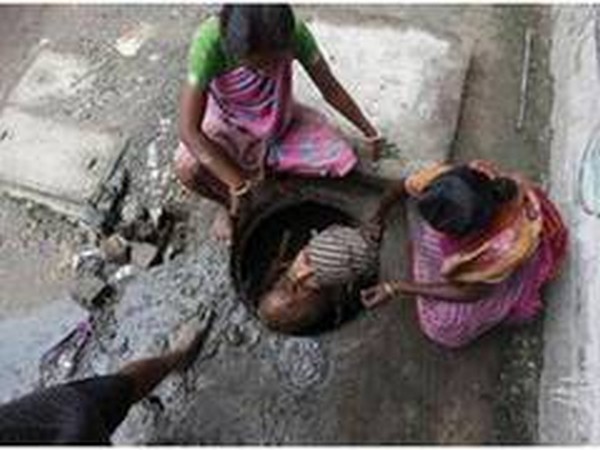New Delhi: India still faces the harsh reality of manual scavenging. One of the deadliest jobs continues even after the practice was legally banned in the country. This caste-based profession is still existent and has led to discrimination and atrocities against those engaged in it. For generations, families from marginalized communities in India have been forced to continue in this profession because of the social ostracism and lack of alternatives.
Sadly, dozens of manual scavengers die due to asphyxia and because of the poisonous gases inside manholes–their families run for justice from pillar to post. They put their lives in danger and enter manholes without any proper safety gear as they are helpless.
Recently, the Bombay High Court came out with an one-of-its-kind order in one such eye opener case, where relief for three widows of manual scavengers, who died in December 2019, was given justice by bench of Justice Ujjal Bhuyan and Justice Madhav Jamdar who passed an interim order in accordance with the decision of the Supreme Court in Safai Karamchari Andolan and directed the district collector to pay Rs 10 lakh compensation and rehabilitation.
The three women Bani Debnath, Neeta Kalshekar and Vimla Chorotiya petitioned in Bombay HC after their husbands had died in December 2019, while cleaning a septic tank at Govandi’s Morya Housing Society. They were represented by Adv. Isha Singh who termed the case as eye opener; the battle for justice was not so easy. Advocate Isha Singh argued that even though the deaths had taken place in a private housing society, the State was strictly liable and was responsible for providing compensation to the families in accordance with Article 17 of the Constitution (abolition of untouchability). Isha explained how she and her team tried from filing PIL to writ to RTI to get justice. “A writ allows the affected individual to approach the High Court and Supreme Court for enforcement of their fundamental rights. A PIL, on the other hand, relaxes the rule of locus standi and allows any person to file a petition on behalf of the affected parties; to enforce their fundamental rights. While PILs have been a game changer in enforcing justice, unfortunately courts have started to take a lot of time in listing, hearing and deciding PILs. This is why the remedy of writ comes faster and through it, we managed to secure Rs. 10 lakh compensation for each of the widows of the manual scavengers who died cleaning the septic tank.”
“Moreover, workers in this country often face exploitation at the hands of their employers. In other jurisdictions across the world, workers have the right to sue such employers and demand hefty compensation, but the Code of Civil Procedure and the registries make it extremely challenging for the poor to take this route of getting prescribed complicated procedures to redress their grievances. If we want to truly empower the people of this country, and ensure that atrocities of manual scavenging and exploitation of working class come to an end, we need to make justice accessible to all.”
The Prohibition of Employment as Manual Scavengers and their Rehabilitation Act 2013, has also not changed much on the ground with several loopholes in law leading to zero conviction. Shockingly, one of the RTIs in 2018 from BMC said, “No death, casualties and injuries caused by manual scavenging in this department from 2014 till 2018.”
Meanwhile, in July this year, the Ministry of Social Justice and Empowerment in Rajya Sabha claimed no deaths have been reported due to manual scavenging in the last five years of the country.
During the Budget Session of Parliament in February, the government had said that 340 people had died while cleaning sewers and septic tanks in the last five years till December 31, 2020, refuting all narratives of BMC and Ministry of Social Justice and Empowerment.
Activists working on welfare of these manual scavengers point out the loopholes in the laws of manual scavenging and seek their abolishment.
In the Mumbai case, even after three deaths, the accused were given bail from police station. This easy escape means no accountability for deaths.

